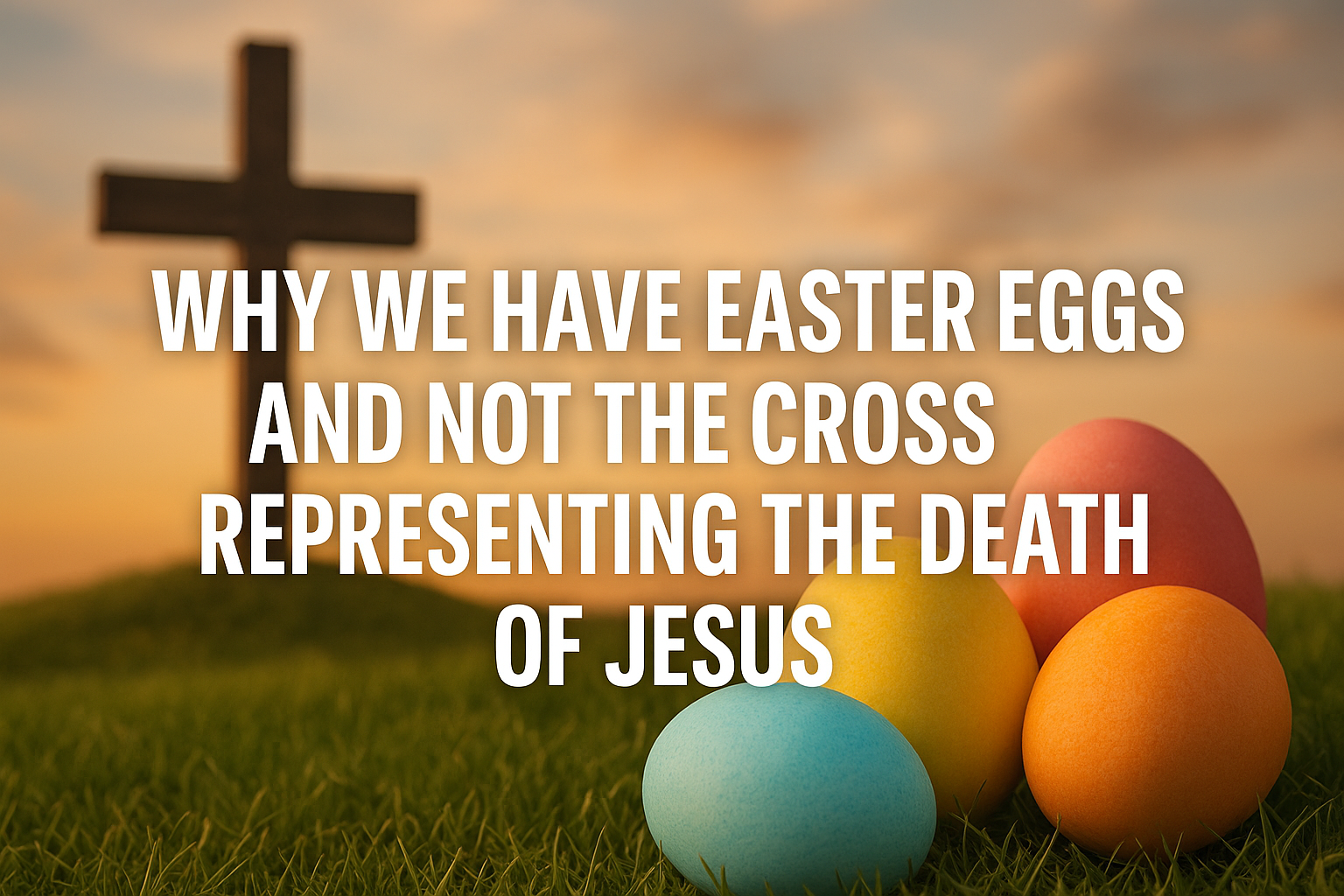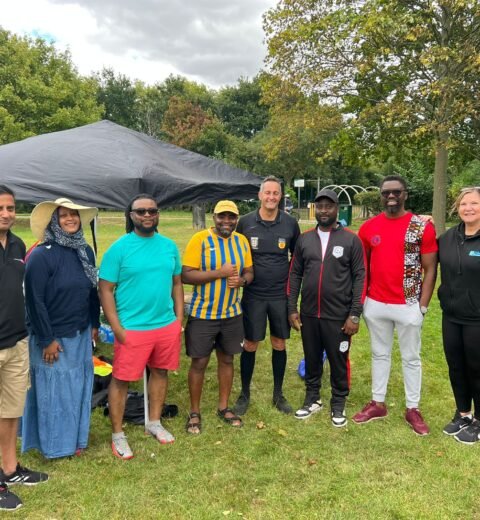Easter is a significant time for Christians around the world, a period marked by reflection, remembrance, and renewal. For many, it is a time to celebrate the resurrection of Jesus Christ after His crucifixion, with various customs and traditions observed. One such tradition is the Easter egg – a symbol we are all familiar with, but have you ever wondered why Easter eggs, and not the cross, are so prominently featured during this celebration?
As Nigerian Christians in the UK, it’s important to explore the deeper meaning behind these symbols and how they tie into the Easter celebration, especially as we balance our rich African heritage with the broader traditions of our adopted home.
The Cross – A Symbol of Suffering and Sacrifice
The cross is undeniably the most important symbol of Easter. It represents the death of Jesus Christ, His ultimate sacrifice for humanity, and the redemption that came through His crucifixion. However, while the cross holds central importance to the Christian faith, it is often not the focal point of Easter celebrations in the way we might expect. This might seem puzzling at first, especially when we think about the death of Jesus as the cornerstone of Easter.
But here’s the key: Easter is not just about Christ’s death; it’s also about His resurrection. Christians celebrate the moment when Jesus rose from the dead, victorious over sin and death. This event is at the heart of the Easter message – it signifies hope, renewal, and the promise of eternal life.
The Easter Egg – A Symbol of New Life
So, why Easter eggs? The egg is an ancient symbol of new life, and in the context of Easter, it is directly connected to the resurrection. Just as a chick emerges from an egg, Christians believe Jesus emerged from the tomb, bringing new life to the world. The egg symbolizes the promise of life and renewal, themes that are central to Easter Sunday.
In some cultures, eggs are painted or decorated as part of the celebration. The act of decorating an egg often mirrors the joy of Christ’s resurrection, where the dark, cold tomb is replaced with the joy of His triumphant return to life. The egg, much like the empty tomb, is a symbol of something once hidden and now revealed – the new life brought about by the resurrection of Christ.
Easter Eggs in the Nigerian Context
For many Nigerians, both in the UK and back home, Easter is a time of family, community, and feasting. It is a time to come together to celebrate the resurrection of Jesus, and the Easter egg fits perfectly into this joyous occasion. While the cross reminds us of Jesus’ death and sacrifice, the egg points us toward the hope and joy that Easter brings – the resurrection, renewal, and new beginnings.
The tradition of Easter eggs may be relatively new in some Nigerian communities, particularly as we continue to blend our local cultural practices with global influences. However, the idea of symbols representing life and renewal resonates deeply within African traditions, where the cycle of life, rebirth, and transformation is often celebrated.
Conclusion
In the end, while the cross represents the sacrifice and death of Jesus, the Easter egg symbolizes the new life and resurrection that followed. Both symbols hold powerful meaning in the Easter story – one pointing to the cost of salvation, the other to the gift of eternal life. For Nigerian Christians in the UK, embracing both symbols allows us to celebrate the fullness of the Easter story: remembering Christ’s sacrifice and rejoicing in the victory of His resurrection.
So, this Easter, whether you are painting eggs with your children, sharing a meal with family, or attending church services, remember that the joy of Easter lies in the hope that Christ’s resurrection offers – a hope that brings new life to all who believe. Happy Easter, Naija UK!
Join Our WhatsApp Channel
Stay updated on the latest UK news, including education, health, job openings, and more for those living in the UK!
Join here: Naija UK Channel
Also, follow us on our social media channels for the latest updates and discussions:
- Twitter: @NaijaUKConnect
- Facebook: Naija UK Connect
- Instagram: @naijaukconnect




